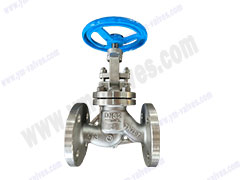-
How to Choose Between Forged and Cast Ball Valves
-
How to Choose Between Forged and Cast Ball Valves
- Suitable for High-Pressure and High-Temperature Environments: Forged ball valves excel in environments with high pressure and temperature due to their sturdy construction.
- Long-Term Reliability: They typically have a longer lifespan, reducing maintenance and replacement frequency.
- Corrosion Resistance: Forged ball valves are often corrosion-resistant, making them ideal for handling corrosive fluids.
- Compact Design: Their compact design is suitable for projects with space constraints.
- High-Precision Control: Forged ball valves provide precise flow control, making them ideal for applications requiring accurate process management.
- Cost-Effective: Cast ball valves are usually more budget-friendly, making them suitable for projects with limited budgets.
- Large Valve Sizes: They are suitable for applications requiring large valves without complex machining.
- General Industrial Use: Cast ball valves are commonly used in general industrial applications that don't demand specialized performance characteristics.
- Ease of Procurement: They are widely available in various sizes and configurations, making them easy to source.
- Space Flexibility: Projects with ample space may not require the compact design of forged ball valves, providing flexibility in valve selection.
- Analyze the Operating Environment: Your first step is to understand your operating conditions, including pressure, temperature, and fluid properties. High-pressure, high-temperature, or corrosive conditions may favor forged ball valves.
- Budget Assessment: Evaluate your project's budget to ensure that the chosen valve type falls within budget constraints. Cast ball valves are often more cost-effective.
- Consider Long-Term Reliability: Think about the long-term operation of your project. Select the valve type that minimizes maintenance and replacement requirements.
- Space Requirements: Determine if your project has space limitations. Forged ball valves are more compact, making them suitable for confined spaces.
- Regulations and Standards: Ensure that your chosen valve complies with applicable regulations and standards to guarantee system safety and compliance.
- Seek Professional Advice: Collaborate with valve experts or engineers who can provide tailored recommendations based on your specific requirements and application scenarios.
In industrial applications, selecting the right valve is crucial for efficient fluid control. When faced with the decision between forged and cast ball valves, it's essential to consider various factors to ensure they meet your project's specific requirements. In this article, we will guide you on how to make an informed choice between these two types of ball valves, enhancing process efficiency and system reliability.
Forged Ball Valves vs. Cast Ball Valves: An Overview
First, let's briefly understand the basic characteristics of these two types of ball valves:Forged Ball Valves
Forged ball valves are manufactured by subjecting metal to high temperatures and pressures, resulting in a robust and tightly sealed structure. They offer the following advantages:
.jpg)
.jpg)
www.yuming-valves.com/products/ball-vavle/flange-ball-valve/forged-floating-ball-valve.html
Cast Ball Valves
Cast ball valves are created by melting metal and pouring it into molds, allowing it to solidify. Here are the key features of cast ball valves:
Now, let's explore how to make a well-informed decision between forged and cast ball valves:
.jpg)
.jpg)
www.yuming-valves.com/products/ball-vavle/flange-ball-valve/floating-ball-valve.html
Ultimately, your choice should align with your project's unique needs and priorities. Whether you opt for forged or cast ball valves, ensure they meet your application requirements and adhere to best practices to ensure system stability and performance. Selecting the appropriate ball valve type will enhance process efficiency and contribute to the overall success of your project.




.jpg)
.jpg)
.jpg)